09 Mar 2020
Wrapping up Beginning with the Seventies and Taking it to the Melbourne Art Book Fair
Thank you to everyone who joined us for the book launch, readings and talks to celebrate the publication of the Beginning with the Seventies project – the Friday and Saturday sessions were filled with good spirit and thoughtful interactions. It was an occasion for all those involved in the project from its earliest inception in 2016 to its final exhibition in 2019 to come together in a broad discussion of art, archives and activism. We are especially grateful to the speakers: Lisa Darms, Kate Hennessy, Sarah Hunt, Yaniya Lee, Jaqueline Mabey, Cait McKinney, Allyson Mitchell, Lisa Robertson, Denise Ryner, Erin Silver, Thea Quiray Tagle and the Belkin’s Lorna Brown.
Copies of Beginning with the Seventies, co-published by the Belkin and Information Office, are available for sale for $70 CAD through the Belkin and Information Office.
Following the successful launch of the book, Lorna Brown is taking Beginning with the Seventies to the Melbourne Art Book Fair (March 13-15, 2020) where she and artist Vicki Couzens will discuss the reactivation of public and private archives in the resurgence of social activism within contemporary art practices. Brown will talk about the launch of the Beginning with the Seventies publication, exploring the process of commissioning contemporary art-activist practices from institutional archives. Couzens will reference her interdisciplinary art practice, most notably her Possum Cloaks, and exploration of lineage and reliance on non-Western archives to articulate contemporary Aboriginal identity and sovereignty. Couzens, who was the first artist-in-residence of the Blue Cabin Floating Artist Residency, is a member of the Keerray Wooroong language group of the Gunditjmara of western Victoria, Australia.
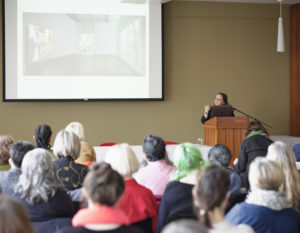
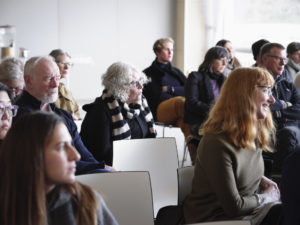
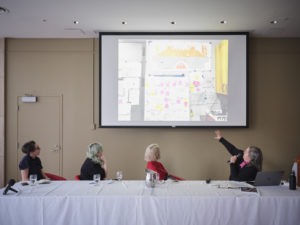
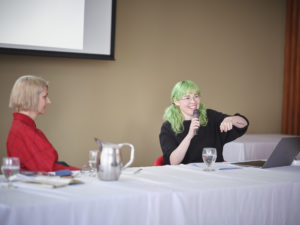
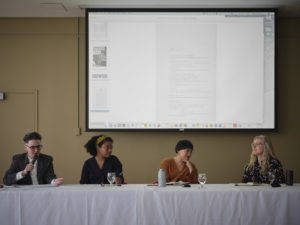
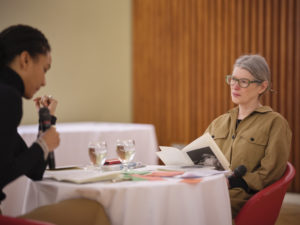
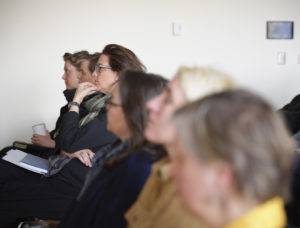
Images (above): Rachel Topham Photography
Related
-
Event
Fri 6 March 2020 at 5 pm
Sat 7 March 2020 at 1 pm
Book Launch and Symposium: Beginning with the Seventies
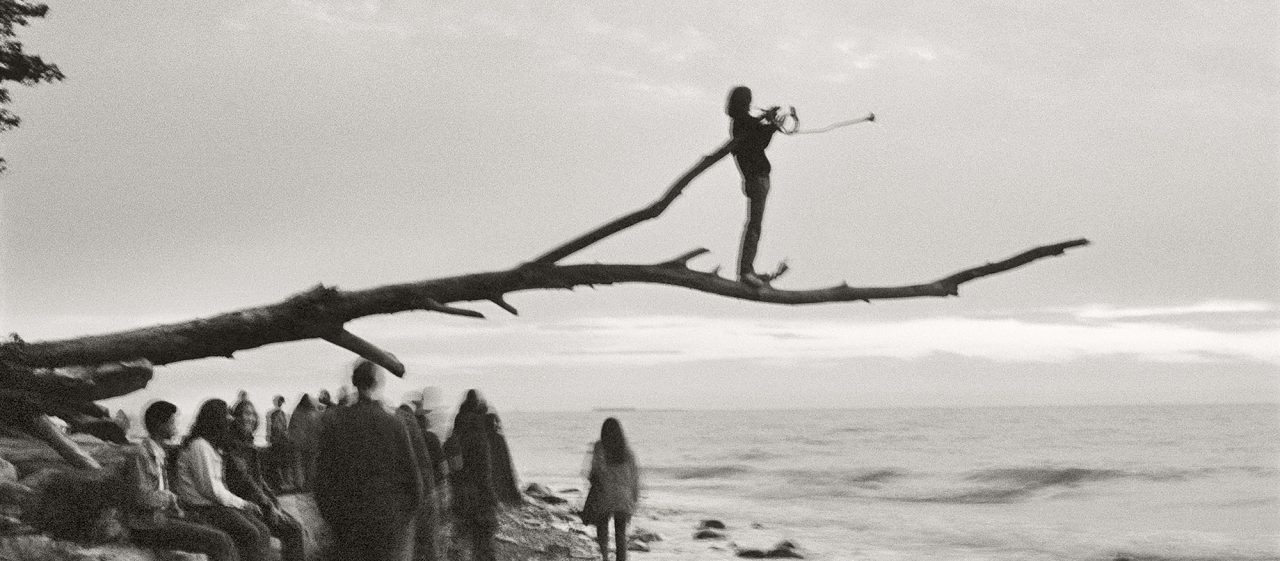
Please join us for a book launch and series of attendant events - readings, discussions, lectures - to celebrate the publication of our Beginning with the Seventies project. The program will take place on Friday, March 6 at the Musqueam Cultural Centre and Saturday, March 7 at the University Centre. Presenters include Lorna Brown, Lisa Darms, Thea Quiray Tagle, Kate Hennessy, Sarah Hunt, Yaniya Lee, Jaqueline Mabey, Allyson Mitchell and Lisa Robertson.
[more] -
Exhibition
4 September 2018 – 2 December 2018
Beginning with the Seventies: Collective Acts
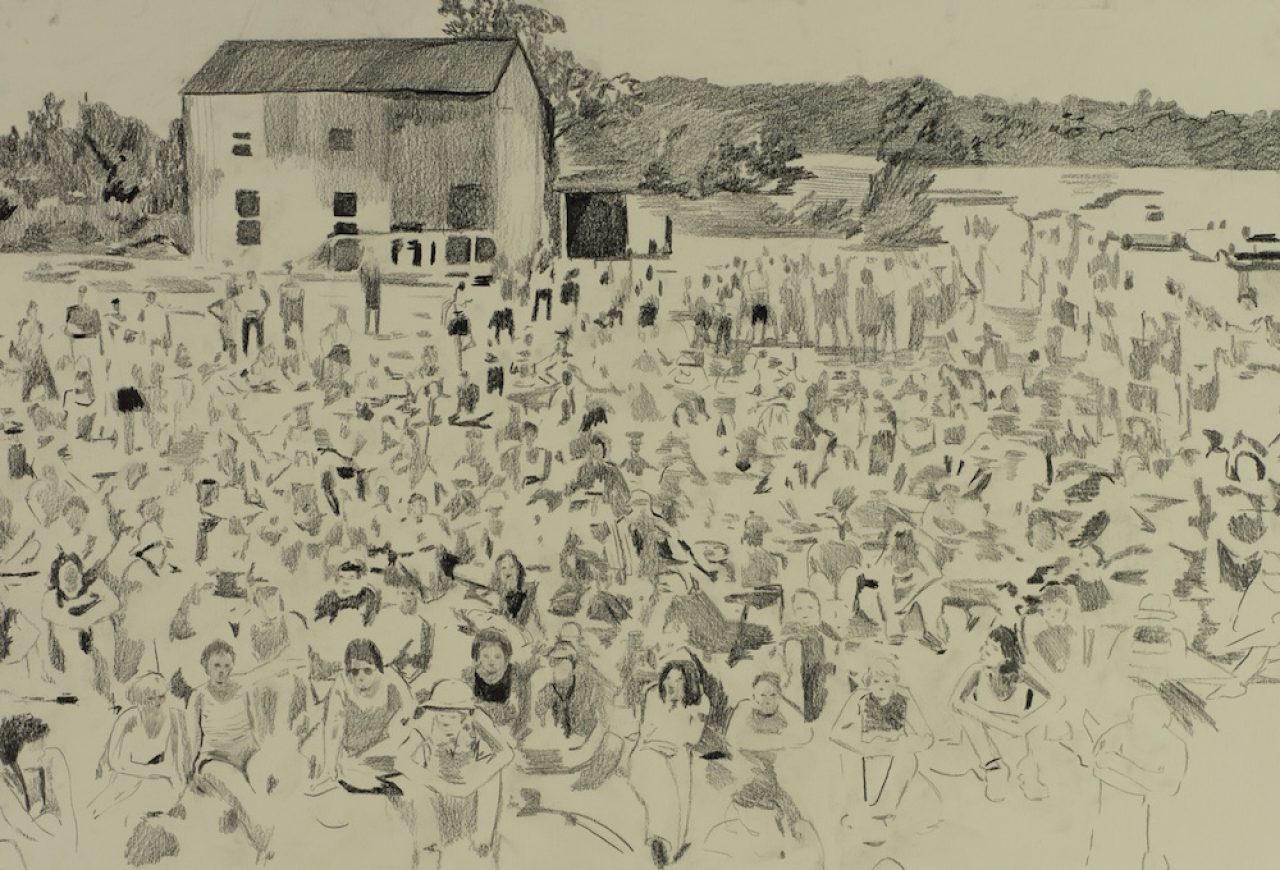
Collective Acts taps into the generative potential of archival research by artists into experiments with collective organizing and cooperative production, presenting new work by Dana Claxton, Jeneen Frei Njootli and the ReMatriate Collective, Christine D’Onofrio and Heather Kai Smith, alongside work by Salish Weavers Guild members Mary Peters, Adeline Lorenzetto and Annabel Stewart. Beginning with the Seventies: Collective Acts is curated by Lorna Brown and is the third of four exhibitions based upon the Belkin Art Gallery’s research project investigating the 1970s, an era when social movements of all kinds – feminism, environmentalism, LGBTQ rights, Indigenous rights, access to health services and housing – began to coalesce into models of self-organization that overlapped with the production of art and culture. Noting the resurgence of art practice involved with social activism and an increasing interest in the 1970s from younger producers, the Belkin has connected with diverse archives and activist networks to bring forward these histories, to commission new works of art and writing and to provide a space for discussion and debate.
[more] -
Exhibition
12 January 2018 – 8 April 2018
Beginning with the Seventies: GLUT
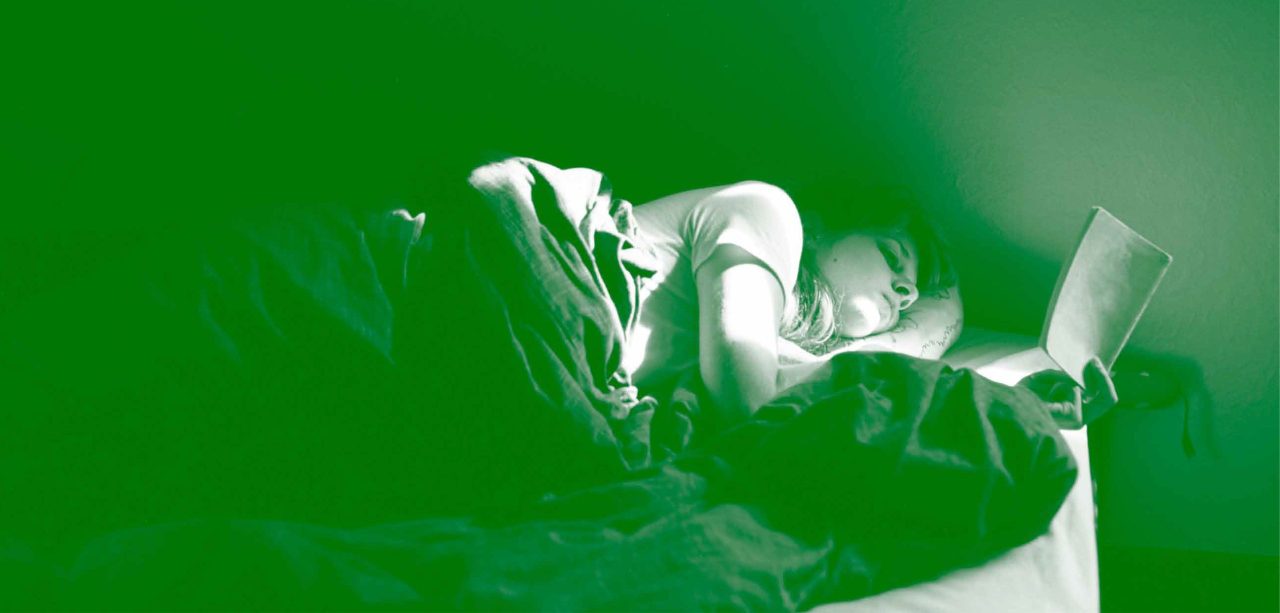
Celebrating the excessive abundance of the archive, Beginning with the Seventies: GLUT is concerned with language, depictions of the woman reader as an artistic genre and the potential of reading as performed resistance.
[more] -
Exhibition
22 June 2018 – 12 August 2018
Beginning with the Seventies: Radial Change
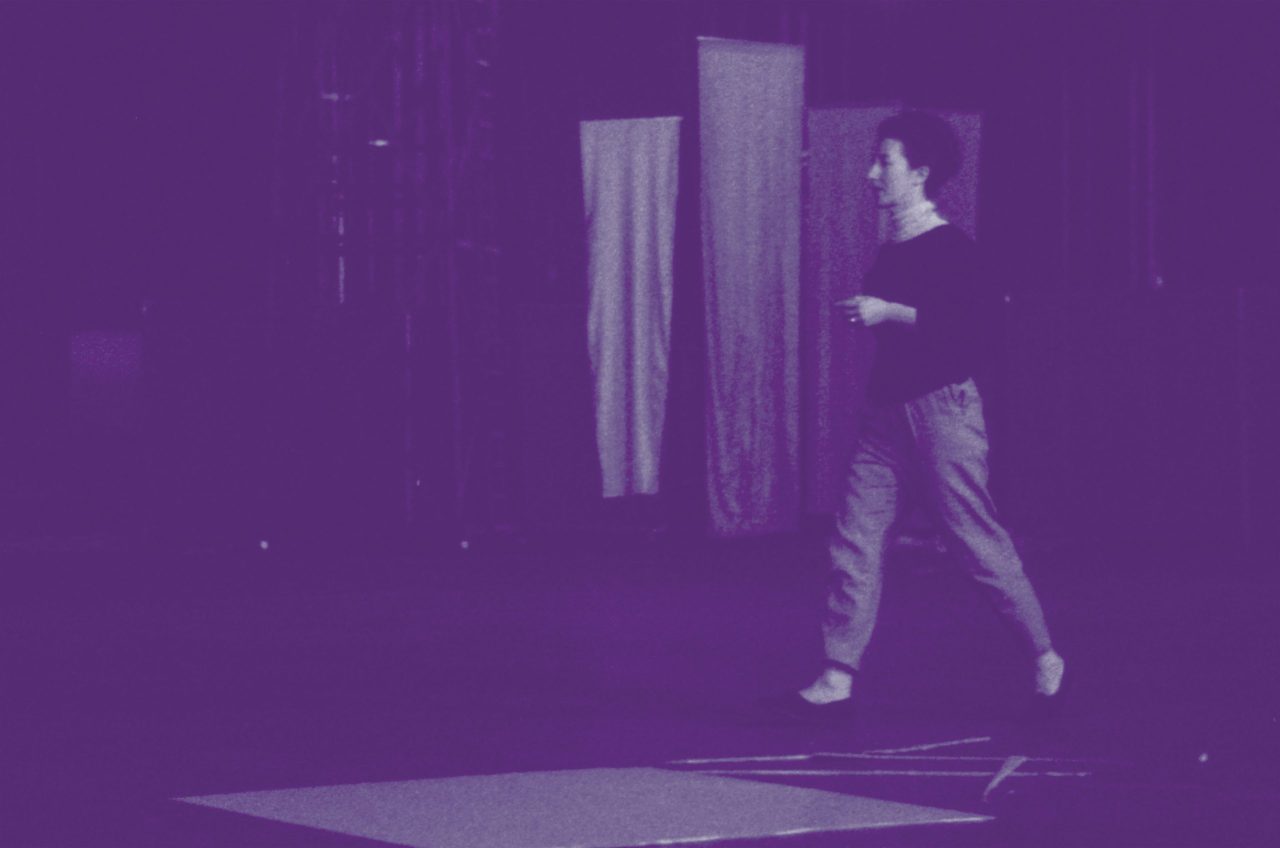
How is an archive formed? Memories of performance often exceed the containment of the document, whether photography, film, prop or testimony. As communities disperse and regroup over time, figures may slip away from the centre. Circling around the embodied archive, the exhibition Radial Change is drawn from the title of a dance work by Helen Goodwin. The elusive histories of Goodwin’s choreography and her influence on the interdisciplinary art scene of the 1970s are explored in new installation works by Evann Siebens and by Michael de Courcy.
[more] -
Exhibition
11 January 2019 – 7 April 2019
Hexsa’a̱m: To Be Here Always
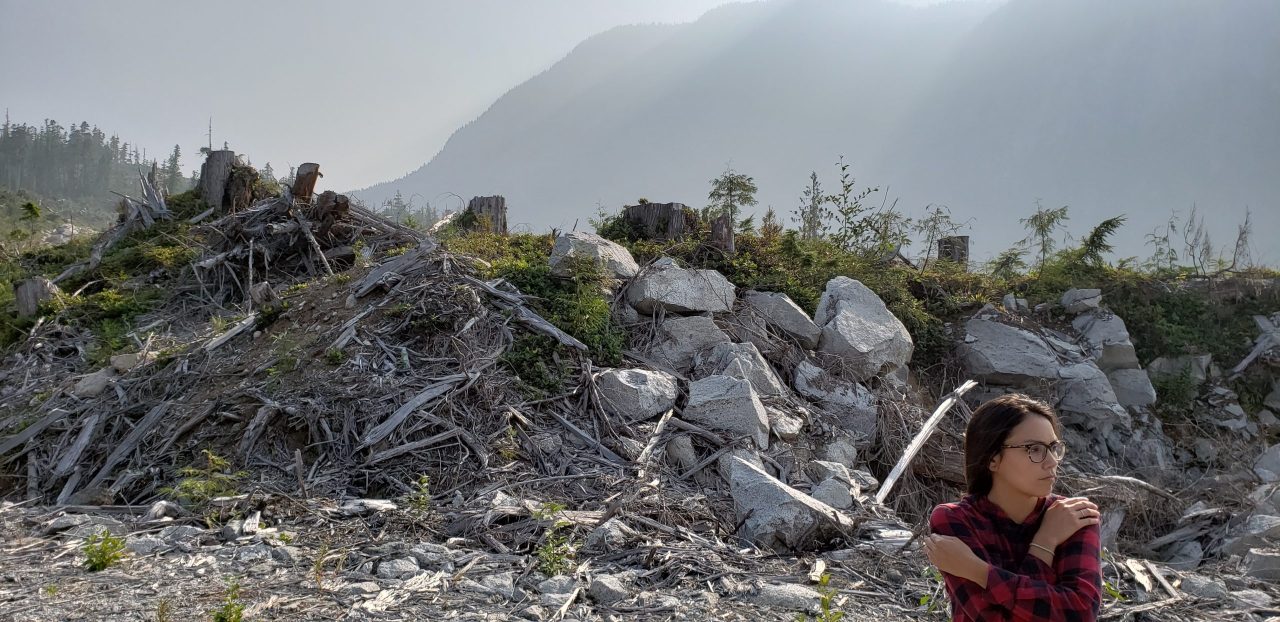
Working together at Kingcome Inlet in Summer 2018, a group of artists used film, video, social media, weaving, animation, drawing, language and song to address the urgent threats to the land and water. A manifestation of the relationships formed between the participants over this past year, Hexsa’a̱m: To Be Here Always is based on sharing knowledge and respectful collaboration. Simultaneously research, material, media, testimony and ceremony, the exhibit challenges the western concept that the power of art and culture are limited to the symbolic or metaphoric, and that the practices of First Peoples are simply part of a past heritage. As Marianne Nicolson states, “We must not seek to erase the influence of globalizing Western culture, but master its forces selectively, as part of a wider Canadian and global community, for the health of the land and the cultures it supports. The embodied practice of ceremonial knowledge relates to artistic experience – not in the aesthetic sense, but in the performative: through gestures that consolidate and enhance knowledge for positive change.” Hexsa’a̱m: To Be Here Always positions the gallery as an active location for this performance, drawing together many faculties and disciplines of the university in generative exchange.
[more]